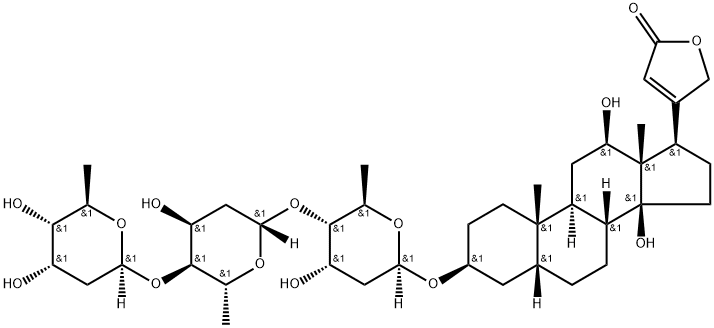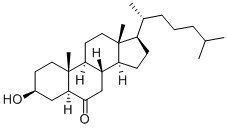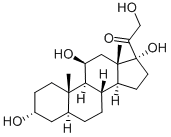1-Eicosanol
Synonym(s):1-Eicosanol;Arachinyl alcohol;Arachyl alcohol
- CAS NO.:629-96-9
- Empirical Formula: C20H42O
- Molecular Weight: 298.55
- MDL number: MFCD00002938
- EINECS: 211-119-4
- SAFETY DATA SHEET (SDS)
- Update Date: 2024-12-18 14:07:02

What is 1-Eicosanol?
Chemical properties
white fluffy crystalline powder
The Uses of 1-Eicosanol
1-Eicosanol has been used:
- in gradient HPLC-charged aerosol detection method for the detection of different lipids
- as internal standard during determination of policosanol′s high molecular weight alcohols (policosanol′s fatty alcohols) in fish oil by GC
The Uses of 1-Eicosanol
arachidyl alcohol is an emollient and a thickener. It is often incorporated into cosmetics to prevent moisture loss and improve skin smoothness.
What are the applications of Application
1-Eicosanol is a non-ionic surfactant
Definition
ChEBI: A fatty alcohol consisting of a hydroxy function at C-1 of an unbranched saturated chain of 20 carbon atoms.
General Description
The polymorphism of 1-eicosanol has been studied by X-ray powder diffraction, differential scanning calorimetry (DSC), Raman scattering and IR spectroscopy.
Flammability and Explosibility
Not classified
Purification Methods
Crystallise the C20 alcohol from *benzene or *benzene/pet ether. [Beilstein 1 IV 1900.]
Properties of 1-Eicosanol
| Melting point: | 62-65 °C(lit.) |
| Boiling point: | 220-225°C 3mm |
| Density | 0,841 g/cm3 |
| vapor density | 7.4 (vs air) |
| vapor pressure | <0.1 mm Hg ( 20 °C) |
| refractive index | 1.4350 |
| Flash point: | 195°C |
| storage temp. | Store below +30°C. |
| solubility | water: slightly soluble0.001g/L at 23°C |
| form | Pellets, Powder or Chunks |
| pka | 15.20±0.10(Predicted) |
| color | White |
| Water Solubility | Insoluble in water. |
| BRN | 1705104 |
| CAS DataBase Reference | 629-96-9(CAS DataBase Reference) |
| NIST Chemistry Reference | 1-Eicosanol(629-96-9) |
| EPA Substance Registry System | 1-Eicosanol (629-96-9) |
Safety information for 1-Eicosanol
| Signal word | Warning |
| Pictogram(s) |
 Exclamation Mark Irritant GHS07 |
| GHS Hazard Statements |
H302:Acute toxicity,oral H315:Skin corrosion/irritation H319:Serious eye damage/eye irritation H335:Specific target organ toxicity, single exposure;Respiratory tract irritation |
| Precautionary Statement Codes |
P261:Avoid breathing dust/fume/gas/mist/vapours/spray. P305+P351+P338:IF IN EYES: Rinse cautiously with water for several minutes. Remove contact lenses, if present and easy to do. Continuerinsing. |
Computed Descriptors for 1-Eicosanol
| InChIKey | BTFJIXJJCSYFAL-UHFFFAOYSA-N |
New Products
(S)-3-Aminobutanenitrile hydrochloride 4-Methylphenylacetic acid N-Boc-D-alaninol N-BOC-D/L-ALANINOL Tert-butyl bis(2-chloroethyl)carbamate 3-Morpholino-1-(4-nitrophenyl)-5,6-dihydropyridin- 2(1H)-one Furan-2,5-Dicarboxylic Acid Tropic acid 1-Bromo-3,5-Di-Tert-Butylbenzene S-2-CHLORO PROPIONIC ACID ETHYL ISOCYANOACETATE 2-Bromo-1,3-Bis(Dimethylamino)Trimethinium Hexafluorophosphate 4-IODO BENZOIC ACID 3-NITRO-2-METHYL ANILINE 1-(2,4-DICHLOROPHENYL) ETHANAMINE (2-Hydroxyphenyl)acetonitrile 4-Bromopyrazole 2-(Cyanocyclohexyl)acetic acid 4-methoxy-3,5-dinitropyridine 1-(4-(aminomethyl)benzyl)urea hydrochloride 2-aminopropyl benzoate hydrochloride diethyl 2-(2-((tertbutoxycarbonyl)amino) ethyl)malonate tert-butyl 4- (ureidomethyl)benzylcarbamate Ethyl-2-chloro((4-methoxyphenyl)hydrazono)acetateRelated products of tetrahydrofuran








You may like
-
 1-Eicosanol CAS 629-96-9View Details
1-Eicosanol CAS 629-96-9View Details
629-96-9 -
 1-Eicosanol CAS 629-96-9View Details
1-Eicosanol CAS 629-96-9View Details
629-96-9 -
 1-Eicosanol, 97% CAS 629-96-9View Details
1-Eicosanol, 97% CAS 629-96-9View Details
629-96-9 -
 Arachidyl alcohol CAS 629-96-9View Details
Arachidyl alcohol CAS 629-96-9View Details
629-96-9 -
 1975-50-4 98%View Details
1975-50-4 98%View Details
1975-50-4 -
 2-HYDROXY BENZYL ALCOHOL 98%View Details
2-HYDROXY BENZYL ALCOHOL 98%View Details
90-01-7 -
 14714-50-2 (2-Hydroxyphenyl)acetonitrile 98+View Details
14714-50-2 (2-Hydroxyphenyl)acetonitrile 98+View Details
14714-50-2 -
 118753-70-1 98+View Details
118753-70-1 98+View Details
118753-70-1
Statement: All products displayed on this website are only used for non medical purposes such as industrial applications or scientific research, and cannot be used for clinical diagnosis or treatment of humans or animals. They are not medicinal or edible.